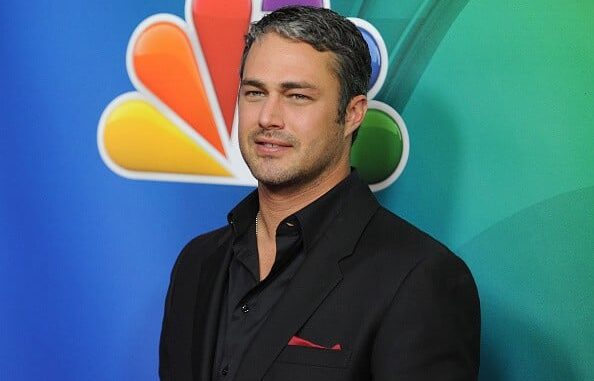
The bell, sharp and unforgiving, tore through the familiar hum of Firehouse 51, a sound usually associated with the roar of a blaze or the crumple of twisted steel. But the dispatcher’s voice that followed, strained and breathless, painted a picture far more chilling: “Active shooter… multiple victims… downtown sector… all available units… mass casualty protocol initiated.” The words hung heavy in the air, a cold, unyielding weight, instantly stripping away the mundane reality of the station and thrusting the men and women of Engine, Truck, Squad, and Ambulance 61 into a nightmare of unprecedented scale.
The journey to the scene was a blur of flashing lights and wailing sirens, a frantic symphony cutting through the city’s usual rhythm. Lieutenant Kelly Severide, grim-faced, gripped the handrail in Squad 3, his mind already mapping out entry points, hazards, and the brutal calculus of rescue. In Engine 51, Captain Matt Casey’s jaw was tight, his eyes scanning the streets ahead, seeking the first glimpse of the unfolding horror. Paramedics Sylvie Brett and Violet Mikami, usually unflappable, exchanged a glance filled with a shared, unspoken dread, their medical kits suddenly feeling inadequate against the unknown. Even Chief Boden, a man of granite resolve, bore a furrow in his brow that spoke volumes of the gravity they were approaching.
Then, they arrived. The air pulsed with a frantic, animalistic terror. The scene wasn't a contained fire, or a neatly defined accident. It was a gaping maw of chaos. Shattered glass glittered like malevolent diamonds across the pavement, reflecting the strobing blue and red lights. The coppery tang of blood mingled with the acrid whisper of gunpowder, clinging to the air like a shroud. A cacophony of screams, moans, and desperate cries rose above the frantic chatter of police radios, punctuated by the chilling, staccato burst of distant gunfire – a stark reminder that the danger was far from over. Civilians, pale and wide-eyed, stumbled away from the epicenter, some clutching wounds, others simply running, their faces etched with unspeakable horror.
Casey, the moment his boots hit the ground, became a human conductor in this orchestra of panic. He barked orders, his voice cutting through the din, directing his team to establish triage points, secure perimeters, and search for the wounded. Severide and his Squad, their axes and tools instantly deployed, moved with a calculated ferocity, breaching doors, clearing pathways, their eyes scanning for both threats and victims. They were searching for life in the heart of death, pushing past the instinctive fear that screamed at them to retreat.
For Brett and Mikami, the experience was a visceral assault. The sheer number of injured was overwhelming. Bodies lay sprawled in impossible angles, each one a life shattered, a family torn apart. They moved from one victim to the next, their gloved hands working with a frantic, practiced rhythm, assessing, staunching, comforting. The tears welled, unbidden, as they met the eyes of the dying, the fear, the pain, the profound loss reflected back at them. Yet, they pushed it down, locking away the emotion, fueled by a stubborn, unyielding imperative to save. Every breath they fought to restore, every pulse they found, was a tiny victory against the encroaching darkness.
Chief Boden, a steady beacon in the storm, established command, his voice a low rumble of authority over the radio, coordinating with CPD and other emergency services. He saw everything – the unyielding resolve of his team, the overwhelming despair of the victims, the brutal reality of their city scarred by an act of senseless violence. He watched as his firefighters, trained for one kind of hell, plunged headfirst into another, their brotherhood an unseen umbilical cord connecting them, pulling them through. They carried the wounded, their uniforms quickly stained with blood and grime, their faces grim but determined. They offered what comfort they could, a gentle word, a steady hand, a silent promise to fight for every breath.
As the sun began its slow descent, casting long, mournful shadows across the devastation, a fragile order began to emerge from the chaos. The shooter was neutralized, the immediate danger contained, but the aftermath lingered like a persistent ghost. The sirens began to fade, replaced by the hushed whispers of investigators and the quiet, heavy work of recovery. The men and women of Firehouse 51, exhausted, emotionally drained, their bodies aching, looked upon the wreckage. They had run towards the unimaginable, faced down the most profound human cruelty, and in doing so, they had embodied the very essence of their calling. They were not just firefighters; they were guardians, healers, and the enduring symbol of hope in a city that had been brought to its knees. The scars of that day would forever be etched into the collective memory of Chicago, but so too would the unwavering courage of Firehouse 51, a testament to the fact that even in the deepest chaos, humanity’s light can never truly be extinguished.
